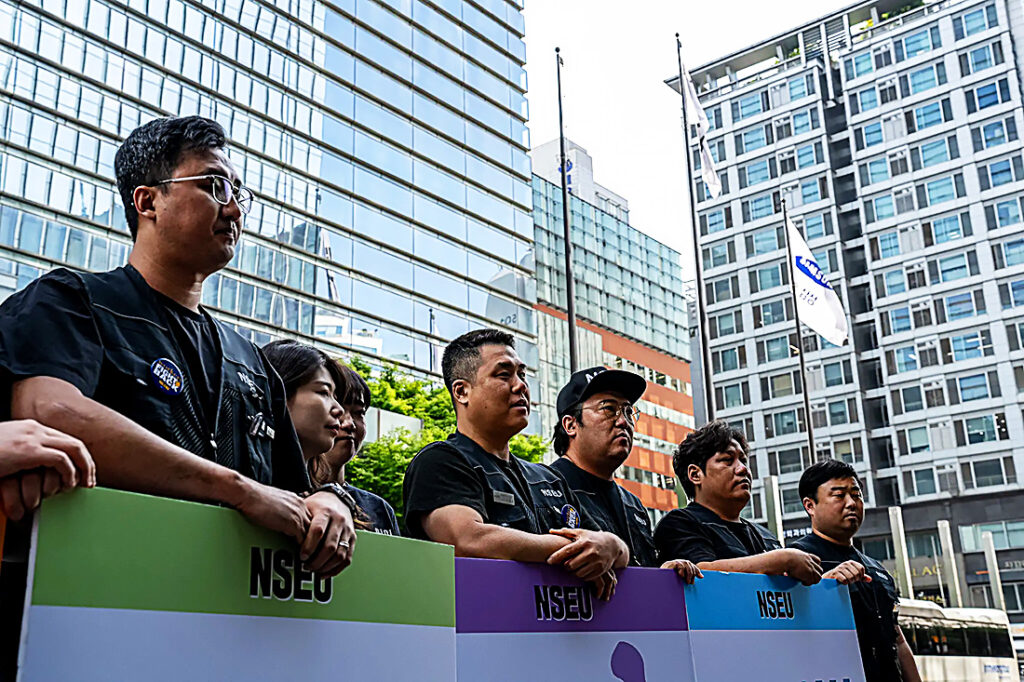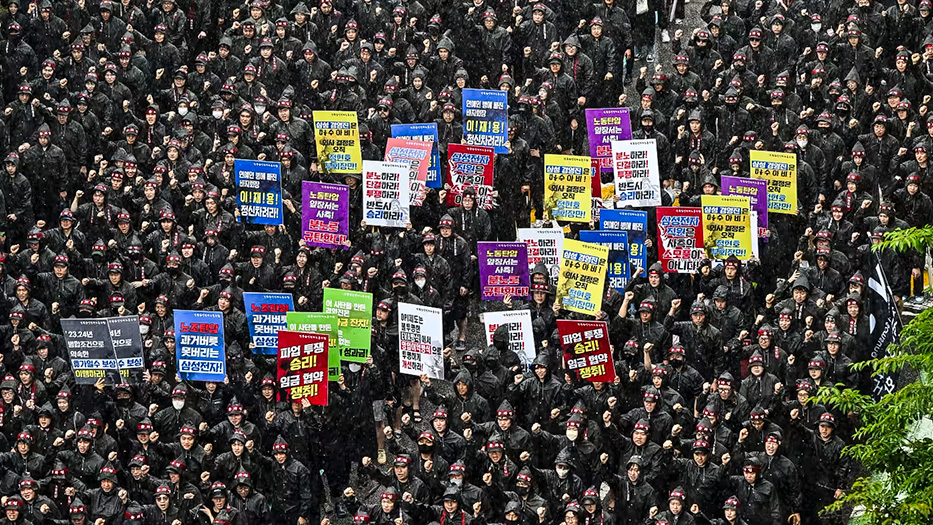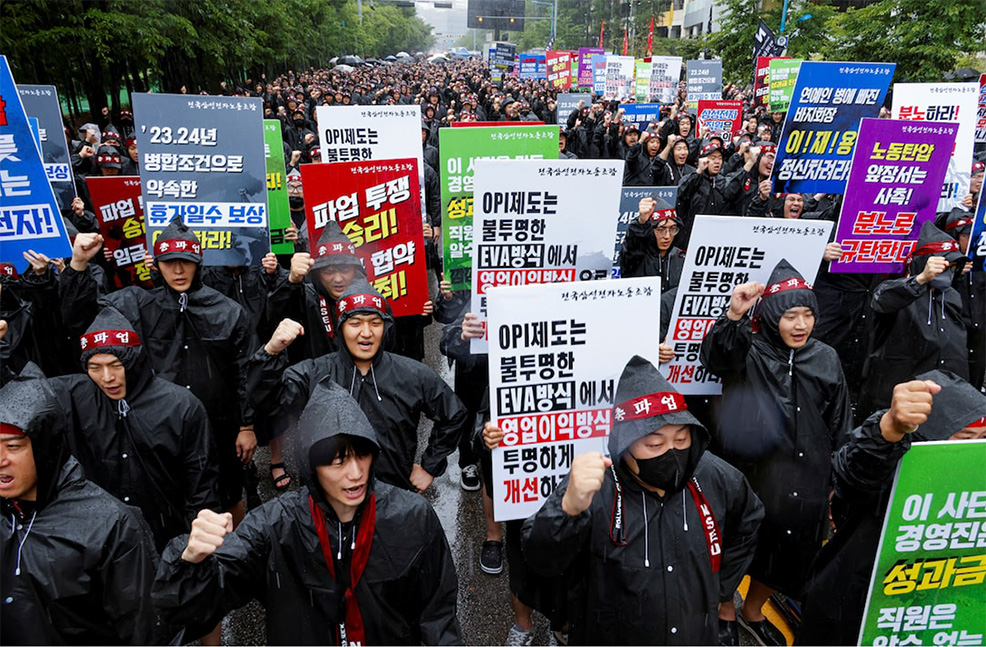
Earlier this month the National Samsung Employees Union (NSEU) opted to end its strike, even though it won no concessions from the company. The strike was the first ever union-directed work-stoppage action in Samsung’s history and threatened to impact critical production schedules at one of the world’s largest consumer electronics companies.
See why Samsung union employees went back to work with no deal
I first told Strata-gee readers about this seminal union-action event at Samsung, one of the most important consumer electronic brands in our industry, back at the beginning of July. There were two reasons this story caught my attention; First, while union strikes are common in the U.S. and many other countries around the world, they are quite rare in Asia; Second, Samsung just came off a great financial windfall (15x increase in operating income) thanks to chip sales related to those building out their AI infrastructure, but the company seemed to be playing hardball with the union.
The union attempted to engage with management on new contract terms by first just calling for a one-day work stoppage to show the union’s growing power, but not wanting to hurt the company too much. The move seemed to backfire as company management told the media that the union’s tactic caused no disruption in its production schedule. It was, in a sense, a nothingburger.
Union Upped the Ante
About two weeks later, the union then chose to up the ante, calling for a three-day stoppage, a period of time that would cause production to be impacted, according to the NSEU. It was the union’s hope that, upon that announcement, Samsung management would return to the negotiating table. If the union had hoped the threat would scare up a deal from management and they could avert the strike – they were wrong. Company management yawned at the announcement.
This reaction of management angered union officials who felt that the company was not taking the union seriously. And so the union chose to broaden the strike and call for it to last an indefinite period of time. This announcement did get a response from company management who agreed to restart negotiations.

Union Leaders Called Off the Strike Due to the Financial Strain on Union Members
However, this new round of negotiations failed to produce a new agreement and the union strike continued for nearly a month. But with both sides at an impasse, the thousands of union members who participated in the strike began to feel real financial hardship. The union president recognized this and that the union had failed to achieve any concessions, and he chose to order workers back to work.
According to a report by the New York Times, the NSEU had a strike fund, but it was not nearly enough for the number of workers who participated in the strike. The fund was said to hold 70 million won – about $60,000 – not nearly enough. So it would appear that the company has a big win under their belt.
Twenty-five days into the strike, and we have nothing in our hands yet. I feel responsiblity as the union leader that we haven’t brought about any results to the union members who have been participating in the strike while going without pay.
Son Woo-mok, NSEU President

Union Leaders Say the Fight Continues…With New Tactics
So it’s all over? Not so fast, the union says, this fight will continue. The union has told the media that it will adopt new more strategically targeted tactical actions, including unannounced guerilla strikes and surprise blitz walkouts. They will not reveal the number of these actions planned or how frequently they will be implemented. It appears the union wants to employ the element of surprise to add to the impact of the labor action.
This is not a loss, but a change of tactics.
Mr. Son
Time will tell if these new tactics will succeed in finally motivating management to offer a new contract for employees. For now, it’s a win for management.
See more on Samsung by visiting samsung.com/us/.








Leave a Reply